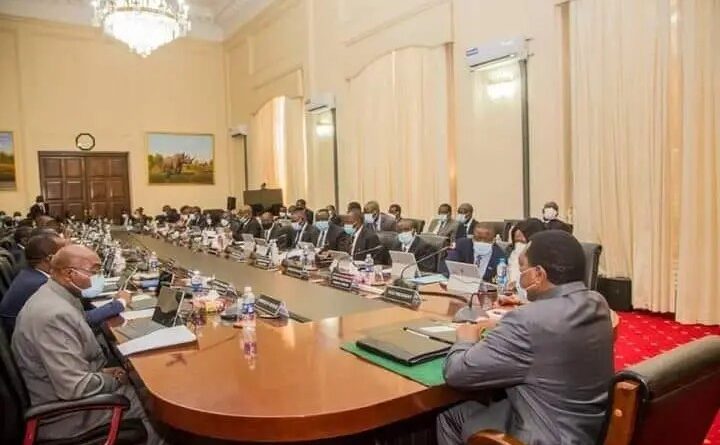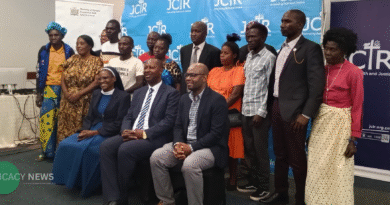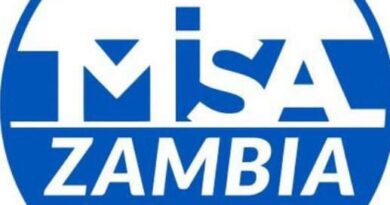5th Cabinet Meeting
The President of the Republic of Zambia, Mr. Hakainde Hichilema, called for the 5th Cabinet Meeting in the Year 2024, on Monday, 18th March, 2024, at State House to deliberate on policy and legislative matters aimed at improving the general living standards of the people.
1. The Customs and Excise (Suspension)(Wheat) Regulations, 2024.
Cabinet approved issuance of a Statutory Instrument namely, the Customs and Excise (Suspension) (Wheat) Regulations, 2024, that provides for the suspension of duty on the importation of 100,000 metric tonnes (MT) of wheat.
In 2015, a ban on wheat importations was introduced in order to protect the local producers of wheat and wheat products.
The industry has indicated that it does foresee a deficit of wheat during the year and has proposed to import 100,000 MT of wheat by 30th August, 2024. Occasionally, the Ministry of Agriculture issues permits to allow importation of specific quantities of wheat to meet domestic supply shortfall. As such, the Ministry of Agriculture has given a ‘no objection’ to the importation so as to meet the shortfall.
This exemption is necessary in order to allow the millers to meet the shortfall in the supply of wheat on the local market and to allow millers to continue production in the face of low supply of the commodity before commencement of the harvesting season when national wheat stocks are expected to be sufficient.
2. International Affairs:
(a) Ratification of the Inter-Governmental Memorandum of Agreement on the Establishment of the SADC Centre for Renewable Energy and Energy Efficiency.
Cabinet approved the ratification of the Inter-Governmental Memorandum of Agreement (IGMoA) on the establishment of the SADC Centre for Renewable Energy and Energy Efficiency (SACREEE) as part of Zambia’s commitment to SADC through the SADC protocol on Energy and in accordance with Article 26 and Article 27 of the SACREEE IGMoA.
The aim of the SADC protocol on Energy is to address common challenges hindering Governments to increase access to modern energy and improved energy security across the nations and the SADC region as a whole. It is also meant to facilitate and coordinate availability of sufficient, reliable, least cost energy services that will assist in the attainment of economic growth and the eradication of poverty whilst ensuring the environmentally sustainable use of energy resources in the SADC region.
Ratifying the Inter-Governmental Memorandum of Agreement on the establishment of the SACREEE will positively contribute towards Zambia’s increased access to modern energy services and improved energy security by promoting market-based uptake of renewable energy and energy efficient technologies and energy services.
(b) Ratification of the revised Nacala Development Corridor (NDC) Agreement amongst the Republics of Malawi, Mozambique and Zambia.
Cabinet also approved ratification of the revised Nacala Development Corridor (NDC) Agreement among the Republics of Malawi, Mozambique and Zambia to ensure safe, cost – effective and efficient movement of goods and persons within the length of the Nacala Development Corridor.
The Nacala Development Corridor is a multi-modal transport and logistics infrastructure network within and through the Republics of Malawi, Mozambique and Zambia. It is one of the important trade corridors in Southern Africa and its development is critical to enhancing regional and international trade competitiveness, particularly for the landlocked countries of Zambia and Malawi.
In order for the Agreement to come into force, there is need for the Member States to ratify it and deposit the instrument of ratification with the SADC Secretariat.
(c) Ratification of the Agreement amending the Tripartite Rail Transport (TRT) Agreement on the Nacala Development Corridor.
Another matter approved for ratification by Zambia is the Agreement amending the Tripartite Rail Transport Agreement on the Nacala Development Corridor among the Republics of Malawi, Mozambique and Zambia.
Ratification of the Agreement will enhance regional connectivity and contribute to the development of a strong and competitive rail transport industry in the Southern sub-region. Implementation of the railway project will reduce transport costs and extend the lifespan of the road networks in the three Member States as most bulk cargo will be transported by rail. The transportation of heavy goods by road has deteriorated the conditions of the roads in Zambia, thereby raising the cost of maintenance.
(d) Ratification of The Tripartite Road Transport Agreement on The Nacala Development Corridor among The Republics of Malawi, Mozambique and Zambia.
Cabinet further, approved ratification of the Tripartite Road Transport Agreement among the Republics of Malawi, Mozambique and Zambia, in order to facilitate safe and efficient movement of goods and vehicles across the borders of the three Member States.
This Agreement is primarily focused on harmonising, streamlining and simplifying transport and customs procedures for international road transport and also seeks to improve coordination and integration of various road transport development projects undertaken by the stakeholders within the three Member States.
3. Accession to the Optional Protocol to the United Nations Convention on the Rights of the Child (UNCRC) on a Communications Procedure.
Cabinet approved Zambia’s accession to the Optional Protocol to the United Nations Convention on the Rights of the Child on a Communications Procedure so as to provide for the protection of children’s rights as an avenue for appeal in an event of dissatisfaction after the exhaustion of local remedies.
The Optional Protocol seeks to provide children and child rights activists with an avenue to report child rights violations that may not be able to be resolved using our domestic avenues. Accession to the Optional Protocol will, therefore, enhance the enjoyment and protection of human rights for all children in Zambia. Further, it will reinforce the international system of accountability for human rights, as a major step towards the full protection of children’s rights and the participatory approach of the UNCRC.
4. Appointment of Board Members:
(a) Appointment of Directors for the Zambia National Building Society (ZNBS).
During the Meeting, Cabinet approved the appointment of the full seven (7) member Zambia National Building Society Board.
The Zambia National Building Society Act in Section 3A Subsection (2) requires that the Minister of Finance appoints not less than seven (7) persons to constitute the Board of Directors for ZNBS.
Having a full Board of Directors in place for the financial institution will ensure effective policy and strategic direction and will enhance adherence to good corporate tenets.
(b) Appointment of Board Members of the National Vocational Rehabilitation Centre (NVRC).
In winding up debate for the day, Cabinet approved the appointment of a three (3) member Board of the National Vocational Rehabilitation Centre, in accordance with the provision of the Persons with Disabilities Act No. 6 of 2012.
As provided for in the Persons with Disabilities Act No. 6 of 2012 Part VI, under section 53 (1), the Minister of Community Development and Social Services is empowered to appoint the Board for the National Vocational Rehabilitation Centre, in order to ensure continued policy direction of the institution.
Hon. Cornelius Mweetwa, MP
MINISTER OF lNFORMATION AND MEDIA AND CHIEF GOVERNMENT SPOKESPERSON



